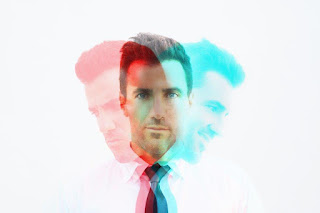The "you-person". How to improve your standing to the outside world.
If you find any of the following phrases familiar, then it can be exciting for you now. If we describe experiences from the first-person perspective, we tend to fall into the indefinite person "you".
- "I wanted to go home from the party earlier because I drank a bit too much, but you're only young once."
- "Two months ago, I wanted to do more sports, but you know that: Then you sign the contract, go twice and then has many other things to do."
- "I did not want to eat so much, but that looked so delicious because you can never hold back."
- "I like dark streets; you just have to go through too much fear."
- "I often have test anxiety because I have a lot to learn. Man is just excited. "
- "My supervisor is not always very nice to me, because you can often get upset about it."
- "Learning a new language is difficult since you sometimes have problems to keep the vocabulary.
Do you know some or similar phrases? But who is this "you"? And how do we know that this is the right way to do or how it is and even know what state of mind this "you" have. Hand on the heart. How often do you say the word "you" during the day? These statements above are representative of an everyday phenomenon that is likely to be known to everyone. When we tell what we have experienced from the "I" perspective, we often change to the indeterminate "you." Although this change of perspective is widespread, it has hardly been studied so far.
However, two psychologists, Ariana Orvell and Susan A. Gelmanvon and a psychologist Ethan Kross at the University of Michigan, had been studying this phenomenon some time ago. These psychologists suppose that we want to protect ourselves by switching to the "you" level. So, whenever we say a sentence, a statement in the "you" style instead of "me," we try to rewrite something that is unpleasant to us to better deal with the experience. So we literally distance ourselves from negative things that could provoke our statement.
We are often tempted to seek, hide or heal our problems, our insecurities, and fears in the outside world. Exactly where it is impersonal where we can hide in a crowd or rather like pointing our finger at others. And the "you" expresses that.
You've probably guessed why because our subconscious mind wants it that way. Our subconscious mind does not want to change. It wants to stay as it is. Because it has the mission to protect us. And the "you" is a means of some to fulfill the mission much better. All new or some old experiences can be frightening. Everything new is not good. And as long as we talk about another or an unknown crowd, our subconscious sleeps and fills up safely. When we say sentences with "you," the subconscious mind does not care because the statement has nothing to do with us.
You see They see. Our "you" has more meaning than you might have thought at the beginning. In summary, you have the task, if you want, to remove the "you" from your vocabulary as best as it can. You can also learn a lot from using your "you." Because it shows you which topics are very important for you and you should take a closer look at them. For who knows, maybe there is a negative experience behind it which prevents you from being even more successful in one area or the other. So from now on let us turn the impersonal "you" into the personal "me."




Kommentare
Kommentar veröffentlichen